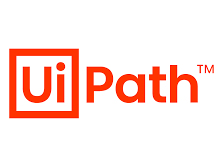Python Course for Freshers
Python Course for Freshers Python…honestly, it doesn’t need an introduction!! This programming language’s demand and popularity have skyrocketed in recent years, particularly in the last 5-6 years. Python is ranked first among many programming languages in several reputable indices. “Python has always been a significant element of Google, and it will continue to be as the system grows and changes.
Python Course for Freshers” Today, Python is used by dozens of Google developers, and we’re seeking additional Python experts.” – This statement from Peter Nerving (Google’s Director of Research) a few years ago demonstrates the language’s supremacy in the computer sector. In other words, if you’re a skilled Python programmer, Python Course for Freshers you won’t be short on job chances because practically every major IT company uses this language, and given its interoperability with emerging technologies, the future of Python developers appears to be bright. You should also be aware that the typical compensation for an Entry-Level Python Developer in India is around 4-6 LPA, however, it can go higher depending on your abilities.

So, now we’re going to tell you about the right approaches and strategies that you need to follow to get a job as a Python Fresher. Let’s get started:
1. Get Your Python Fundamentals Strong: The first thing an interviewer wants from you, especially if you’re a newbie, is that you understand the principles and fundamentals of the Python language. At least in this region, you’re not supposed to give any excuses! Before stepping out for a Python interview, you should have a firm grasp on Python syntax, statements, variables and operators, control structures, functions and modules, OOP ideas, exception handling, and a variety of other concepts. In addition, there are various official documents, guides, and other learning resources available that can help you to learn and master Python effectively.
2. Learn Python Frameworks: Python is well-known for having a large number of libraries and frameworks available. Additionally, you must learn and become skilled with these Python web frameworks to move closer to your goal of landing a job as a Python newcomer. There are several Python web frameworks available, such as Django, Flask, Web2Py, and so on – you don’t need to master all of them because you may choose the ones that best suit your needs. These Python frameworks are divided into three categories: Full-Stack Framework, Microframework, and Asynchronous Framework, which is the most recent addition to the club. Many developers consider Django to be the standard Python framework, therefore it’s a good place to start as a newbie. A sufficient amount of experience with these frameworks will not only help you go further into the Python world but will also help you stand out among other Python newbies.
3. Build Some Relevant Projects: To be honest, simply knowing Python principles is insufficient; you must apply all of your newfound knowledge and skills to gain practical experience. You can do the same by creating numerous Python projects that are relevant! You can begin by creating a few small projects, such as a number guessing game, a hangman game, a website blocker, and so on. You can also choose to develop a few advanced-level projects once you’ve learned a few Python web frameworks and other popular technologies (we’ll go over this in more detail later in the tutorial). You should be aware that projects do indeed add value to your resume.
4. Get Exposure to Trending Technologies Using Python: Needless to say, Python is employed in practically every new technology trend, whether it’s Artificial Intelligence, the Internet of Things (IoT), Cloud Computing, or something else entirely. Obtaining exposure to these emerging technologies through Python will not only make you industry-ready, but it will also provide you an advantage over other Python professionals when it comes to job opportunities. It will demonstrate to recruiters that you are well informed about current industry developments. Aside from that, it will steer you toward your unique career goal. For example, if you wish to pursue a career in Data Science, after learning Python, you can study Data Science ideas and create various related projects. Similarly, if you want to work in the Artificial Intelligence and Machine Learning fields, you can use Python and other programming languages to work on these technologies.
5. Do an Internship & Grow Your Network: Many of you will immediately dismiss this technique after reading this header. However, one single strategy can increase your chances of landing a job as a Python newbie by 4 to 5 times. There are numerous advantages to taking an internship, like demonstrating to the employer that you have a genuine interest and concern for Python, gaining valuable experience by working on real-world projects, and so on.
You must also expand your professional network – you must understand that recruiters favor freshers who have completed multiple projects and relevant internships in the past, and when they are mentioned by some of the industry’s most authentic people, things get much easier. As a result, you should contact professionals who are already working in the sector that you want to enter, such as Data Science, Machine Learning, Web Development, and so on.
I’m confident that if you apply the above-mentioned strategies regularly and honestly, you’ll be able to acquire a Python job as a fresher without difficulty.


